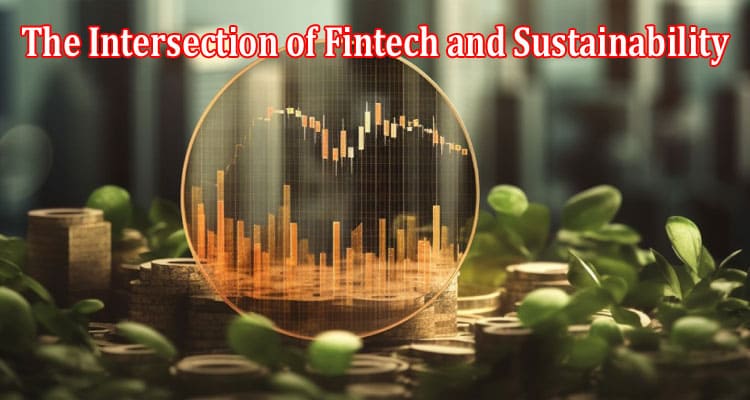The Intersection of Fintech and Sustainability: What You Need to Know
Fintech’s potential extends far beyond convenience and innovation; it serves as a formidable catalyst for sustainability. Picture yourself, as an aspiring entrepreneur in a remote village, devoid of essential banking services like loans, housing, and healthcare. The concept of E-finance emerges as a beacon of hope. The World Bank underscores fintech’s capacity to provide financial services to 1.7 billion unbanked individuals, reducing the financial sector’s carbon footprint by a remarkable 90%. Furthermore, the World Economic Forum‘s findings indicate that fintech innovations, including blockchain and AI, have increased financial system transparency and trust by 30%. These statistics should ignite your interest, prompting the consideration of creating your own E-finance application. Enter Kindgeek, a reputable fintech software development company that can help you turn this vision into a reality.
Yet, you may question whether fintech solely prioritizes speed and convenience, detached from sustainability and social impact. This notion is a common misunderstanding. Financial tech wields the potential to contribute to environmental, social, and governance (ESG) objectives, encompassing poverty alleviation, inequality reduction, and greenhouse gas emission mitigation. This article delves into the interconnected realm of fintech and sustainability, highlighting fintech’s pivotal role in crafting a sustainable economy. We spotlight exemplary E-finance applications leading this charge and elucidate their integration into the wider sustainability ecosystem.
How are fintech applications related to the development of a sustainable economy?
To understand the link between fintech and a sustainable economy, let’s first define what a sustainable economy entails. It’s an economy that balances economic growth, environmental protection, and social justice. Fintech applications become a crucial player in this equilibrium by facilitating financial inclusion, enhancing transparency, improving efficiency, and fostering innovation.
- Firstly, fintech paves the way for financial inclusion by providing affordable and accessible financial services to underserved populations. People with disabilities, low-income people, rural communities, and small businesses, previously excluded from the financial mainstream, now have the opportunity to participate in the economy and improve their livelihoods. This inclusivity is a cornerstone of a sustainable economy.
- Secondly, fintech contributes to transparency and accountability in the financial system. The utilization of technologies like blockchain, smart contracts, and digital identities helps prevent fraud, corruption, and money laundering while promoting ESG reporting and disclosure. In a sustainable economy, trust and integrity are paramount.
- Thirdly, fintech’s integration of artificial intelligence, machine learning, and cloud computing fosters efficiency and cost reduction in the financial sector. The automation of processes and optimization of operations not only improve financial services but also lower carbon emissions, aligning with sustainability goals.
- Lastly, fintech encourages innovation by harnessing big data, analytics, and crowdsourcing. This innovation leads to the creation of new products and services that address social and environmental challenges, such as green bonds, impact investing, and peer-to-peer lending. These innovations further cement financial tech’s role in building a sustainable economy.
Which companies typically use it?
Various types of businesses might benefit from having their own fintech application. Here are some examples:
| Type of Business: | Description |
|
Offer borrowing opportunities for major purchases like houses and vehicles. |
|
Benefit high transaction volume businesses with their payment processing apps. |
|
Provide services related to budgeting, saving, and investing. |
|
Streamline operations for businesses dealing with stocks, bonds, and securities. |
|
Offer mobile banking solutions to banks and credit unions. |
|
Enhance user experience for insurance companies through insurtech apps. |
|
Utilized for credit scoring and reporting purposes. |
In addition, small businesses across various sectors can also benefit from fintech apps for tasks like payment processing, payroll management, and financial planning. It’s also worth noting that financial tech is not limited to just financial institutions; non-financial businesses can also leverage E-finance to improve their financial operations. Explore further on Indeed.
What functionality do fintech applications provide for a sustainable economy?
Take Kindgeek, a FinTech software development organization, for instance. They’ve already shown a strong dedication to sustainability, and several features in their fintech apps have had a significant impact.
- Flodplain
This white-label neobank solution aims to provide small and medium-sized enterprises with a unique, comprehensive, and self-managed platform. It offers a straightforward financial management system free from red tape, thereby promoting financial empowerment and inclusivity.
- Asoko Insight
Known as the “Corporate Map of Africa,” this application is a database of Africa’s top private companies for global users to access and research for trade and investment purposes. It encourages sustainable investments and economic growth.
- HyperJar
This FinTech platform offers users a suite of tailored mini-accounts, each aligned with their individual goals, connections, and lifestyle, fundamentally transforming the approach to financial management. A single intelligent payment card connects all these mini-accounts, creating a user-friendly financial management system that helps users adjust their spending habits and achieve their financial targets efficiently.
How does fintech contribute to sustainable stakeholders capitalization?
In a sustainable economy, various stakeholders collaborate within an ecosystem to drive progress. Fintech applications seamlessly integrate into this ecosystem and play vital roles in connecting and aiding different actors:
- Governments and Regulators: Fintech applications assist them in designing and implementing policies and regulations that promote sustainability in the financial sector. This includes green finance standards, incentives, and taxonomies, aligning with global sustainability goals.
- Investors and Businesses: Fintech equips them with data, tools, and platforms to integrate, measure, and report environmental, social, and governance aspects into their strategies and portfolios. These actions align with initiatives like the UN Sustainable Development Goals (SDGs). The UN provides a comprehensive overview of the 17 SDGs, their targets, indicators, progress, and challenges.
- Consumers and Civil Society Organizations: Fintech empowers them to make informed and responsible financial decisions reflecting their values and preferences. It offers education, awareness, and engagement opportunities, turning consumers into agents of change.
Forbes discusses in detail how fintech can contribute to stakeholder capitalism by addressing social and environmental challenges, as well as creating value for customers, employees, and investors.
Conclusion
In this article, we’ve explored the convergence of fintech and sustainability, uncovering their significant interplay in forging a sustainable economy. We’ve delved into the ways E-finance applications promote inclusivity, transparency, efficiency, and innovation to benefit our environment, society, and governance.
As you consider the implications and the role you might play in this transformation, remember that fintech applications can not only make life easier, but also make the world better. They hold the potential to revolutionize the financial sector into a force for good, driving positive change for both people and the planet. We invite you to explore and embrace the intersection of financial tech and sustainability. Should you find inspiration in creating your own E-finance application that can make a difference, be mindful that fintech app development companies such as Kindgeek are prepared to assist you in bringing your vision to fruition.




